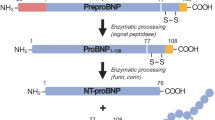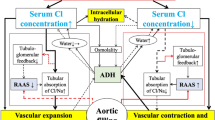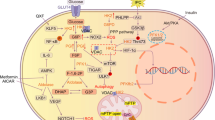Abstract
The myocardial sodium-hydrogen exchanger (NHE), and more specifically the NHE-1 isoform is now well-recognized to be a major contributor to ischemic and reperfusion injury. Recent evidence suggests that NHE-1 is also potential candidate for targeted intervention in terms of attenuation of the remodelling and hypertrophic processes which contributes to heart failure. Experimental studies have shown that NHE-1 inhibitors attenuate cardiomyocyte hypertrophy induced by various factors and reduce heart failure in vivo, independently of infarct size reduction. Although the precise cellular mechanisms for NHE-1 involvement remain to be elucidated, current data suggest a potentially effective new therapeutic approach for the treatment of heart failure via NHE-1 inhibition.
Similar content being viewed by others
Author information
Authors and Affiliations
Additional information
Received: 23 April 2001 / Accepted: 4 May 2001
Rights and permissions
About this article
Cite this article
Karmazyn, M. Role of sodium-hydrogen exchange in cardiac hypertrophy and heart failure: a novel and promising therapeutic target. Basic Res Cardiol 96, 325–328 (2001). https://doi.org/10.1007/s003950170040
Issue Date:
DOI: https://doi.org/10.1007/s003950170040




